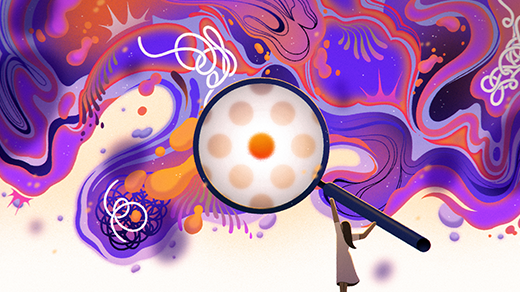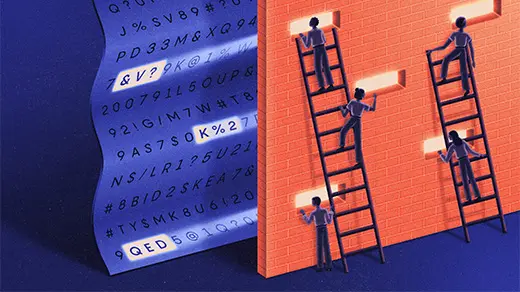What's up in
Randomness
Latest Articles
How a Problem About Pigeons Powers Complexity Theory
When pigeons outnumber pigeonholes, some birds must double up. This obvious statement — and its inverse — have deep connections to many areas of math and computer science.
The High Cost of Quantum Randomness Is Dropping
Randomness is essential to some research, but it’s always been prohibitively complicated. Now, we can use “pseudorandomness” instead.
Computer Scientists Combine Two ‘Beautiful’ Proof Methods
Three researchers have figured out how to craft a proof that spreads out information while keeping it perfectly secret.
When Data Is Missing, Scientists Guess. Then Guess Again.
Across the social and biological sciences, statisticians use a technique that leverages randomness to deal with the unknown.
Computation Is All Around Us, and You Can See It if You Try
Computer scientist Lance Fortnow writes that by embracing the computations that surround us, we can begin to understand and tame our seemingly random world.
Avi Wigderson, Complexity Theory Pioneer, Wins Turing Award
The prolific researcher found deep connections between randomness and computation and spent a career influencing cryptographers, complexity researchers and more.
The Researcher Who Explores Computation by Conjuring New Worlds
Russell Impagliazzo studies hard problems, the limits of cryptography, the nature of randomness and more.
Complexity Theory’s 50-Year Journey to the Limits of Knowledge
How hard is it to prove that problems are hard to solve? Meta-complexity theorists have been asking questions like this for decades. A string of recent results has started to deliver answers.
How Randomness Improves Algorithms
Unpredictability can help computer scientists solve otherwise intractable problems.








